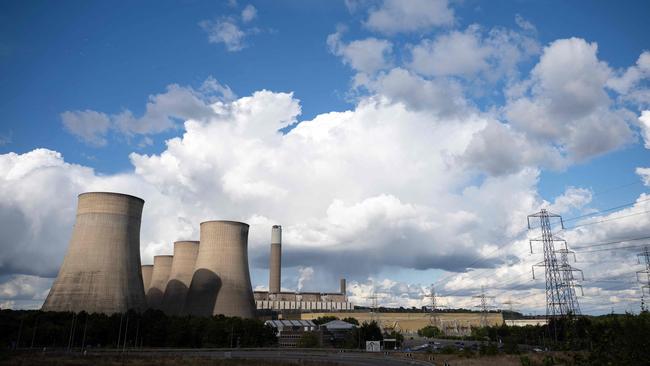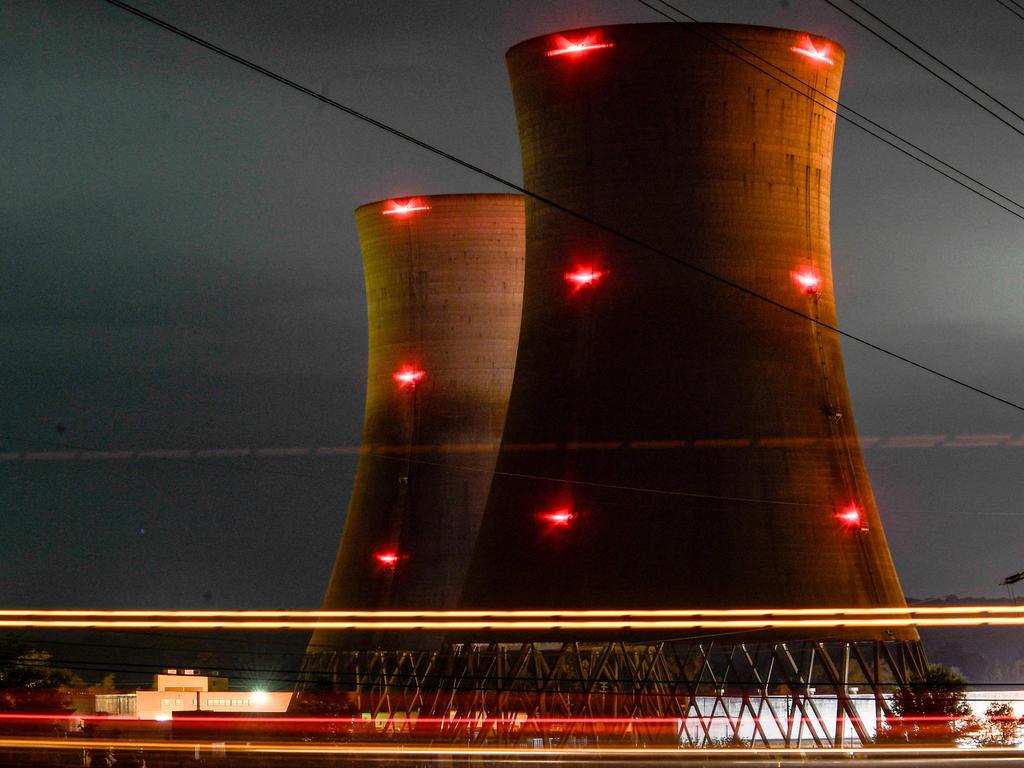
The Tesla-driving, wind-farm loving, coal-loathing, biofuel curious, plastophobic garbage separators had a big win this week when it was announced the last coal-fired power station in Britain had closed.
Not to be a nark, but let’s note that two former coal-fired power plants – Drax and Lynemouth – are still running but have switched from burning coal to burning wood. And not just a little bit of wood. Britain’s Department for Energy Security and Net Zero reports that biomass generated “11 per cent of total electricity supply in 2022”.
In the baroque world of greenhouse gas accounting, wood pellets are considered renewable because of a deft Yin-Yang magic act: burning wood produces lots of carbon dioxide but growing trees sucks it up. Hey presto, that apparently adds up to net-zero carbon at the point of combustion. Well, at least according to many national and intergovernmental policy frameworks, including those of Britain and the EU. This matters because it means biomass power stations qualify for renewable energy subsidies; more than $13bn so far in the case of Drax.
Sceptics, such as those from think tank Chatham House, smell books being cooked and the institute wrote a report saying so in 2022. It recorded that Britain consumed about 8.3 million tonnes of wood in 2018, “representing 21 per cent of all the wood pellets produced worldwide. The Drax power station alone burnt seven million tonnes of pellets in that year.”
About 60 per cent of the pellets were imported from the US and Canada.
The think tank concluded: “Since emissions take time to be reabsorbed by forest growth, carbon emissions in the atmosphere will increase for a period of decades or even centuries …
“Policymakers in consumer countries will be given a false sense of optimism about the progress being made in decarbonising their energy supply.”
Drax is Britain’s biggest carbon emitter, producing twice as many emissions last year as the next biggest offender, the Port Talbot Steelworks. Alas, that comparison won’t fly any more because the Welsh steelworks closed on Monday. Its owner has opted to replace the steelwork’s coal-fired furnace with a greener electric one. The transition is scheduled to take three years, cost $2.4bn – $1bn of which is being paid by British taxpayers – and lead to the loss of 2800 jobs, almost 75 per cent of the workforce.
Back at Drax, a month ago The Guardian reported that 41 green groups had written an open letter to the Labour Energy Secretary urging him to end its subsidies. And a 2022 BBC Panorama investigation found some of the wood pellets the company used came from old-growth trees in Canada.
Ecologist Michelle Connolly told Panorama Drax was destroying forests that had taken thousands of years to develop. “Logging natural forests and converting them into pellets to be burned for electricity, that is absolutely insane,” she said. Amen to that.
And don’t expect that not-zero carbon from Drax to be mopped up by the fast-growing balsa forests of Ecuador, because they are being felled to build forests of wind farms in Europe and China.
Rainforest Rescue reports on the under-appreciated fact the three 81m “rotor blades of a Siemens Gamesa offshore wind turbine, for example, contain a total of nearly six tons of balsa … or the equivalent of 40 trees”.
About 90 per cent of the balsa traded worldwide comes from Ecuador, and the US international Trade Commission weighed in on this in 2022.
“To meet Chinese demand, there was reportedly an upsurge of illegal balsa logging activities in Ecuador in 2020,” the trade commission report said. “Primicias, an Ecuadorian newspaper with access to data from Ecuador’s Ministry of Environment, estimated that the quantity of illegally sourced balsa seized in Ecuador increased from 700 cubic metres in 2019 to 1973 cubic metres in 2020, a 180 per cent increase. Loggers reportedly exploited protected reserves to harvest balsa, especially lands belonging to the indigenous Waorani people living in Ecuador’s eastern Amazon region.”
Wood also is used to make paper so the eco-aristocracy can at least take comfort in the knowledge that, after much keyboard activism, evil plastic bags are being replaced with “sustainable” paper ones. This is a no-brainer because any Google search will quickly tell you “it’s been estimated that plastic pollution kills 100,000 marine mammals every year”.
In 2006 a Productivity Commission inquiry into waste tried to nail down the source of this widely circulated number. It concluded the claim was “not supported by the evidence” and appeared to have been “based on the misinterpretation of Canadian research on the impact of fishing nets”.
That, and an assessment of other environmental concerns, led the commission to conclude: “Based on the evidence available … it appears that the Australian, state and territory governments do not have a sound case for proceeding with their proposed phase-out of plastic retail carry bags”.
Let the record show that evidence never slowed the march of progressive politics because it runs on emotion. Surely the alternatives to plastic must be better for the environment because it just feels right.
Well, not according to those who evaluate the environmental footprint of a product across its entire lifespan.
This cradle-to-grave approach is called life cycle analysis. A 2024 peer-reviewed paper using this method was published in the academic journal Environmental Science and Technology. It did not bury the lede because the title is: Replacing Plastics with Alternatives is Worse for Greenhouse Gas Emissions in Most Cases. “We assess 16 applications where plastics are used across five key sectors: packaging, building and construction, automotive, textiles and consumer durables,” the authors wrote.
“These sectors account for about 90 per cent of the global plastic volume. Our results show that in 15 of the 16 applications a plastic product incurs fewer GHG emissions than their alternatives. In these applications, plastic products release 10 per cent to 90 per cent fewer emissions across the product life cycle.”
RMIT University conducted a life cycle review of the environmental footprint of shopping bags for Woolworths in 2009. It concluded the best were the re-reusable (petrochemical-based) bags, as long as you used them no less than 104 times across two years. The worst on almost every measure was the paper bag. By comparison, even a single-use plastic bag was assessed as far less damaging to the environment.
This column understands Coles commissioned an identical report in 2022 and buried the results. A copy has been sought from the company but, alas, has yet to arrive. Coles and Woolworths have both phased out plastic bags in favour of paper as, everywhere, the appearance of being green seems to matter far more than the inconvenient truth. At least the eco-aristocrats can stick both companies’ bags in the recycling bin.
But then a recent report by SBS has, again, highlighted the fact a lot of Australia’s “recycling” ends up as landfill in Indonesia.
Finally, if you own an electric car on Australia’s east coast and charged it from the grid in the past two days then 60 per cent of its fuel was a mix of brown and black coal.
As the frog sang, it’s not easy being green. But only if you are a blue collar worker. Meanwhile, the cafes of the eco-aristocracy glow warm with smug satisfaction, as they rest easy on a biofuel cocktail of lies.







If only the world ran on the warm inner glow of the eco-aristocracy then we would have a renewable fuel source that could power the planet.